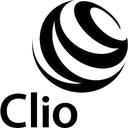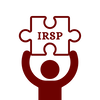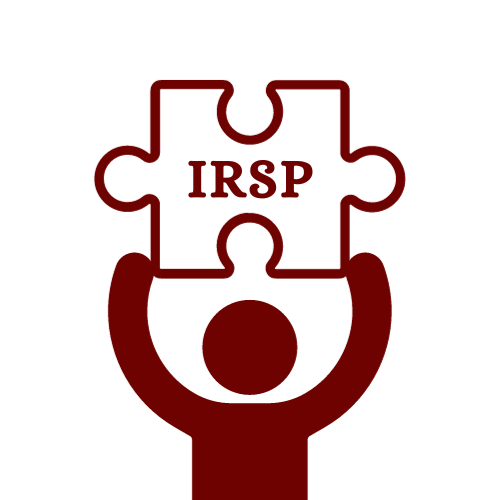 It’s been a while since the last update from our CHOICE research team, yet it feels like only yesterday we went to visit CHOICE’s headquarters – that were then still situated in Utrecht – to discuss what our research was going to look like. Time has passed by so quickly since then, we’re already teetering towards the deadline of our first draft version. It’s strange to think that just weeks ago we were conducting interviews with both CHOICE advocates, as well as employees of the Ministry of Foreign Affairs, Stop Aids Now, Dance4Life and the International Planned Parenthood Foundation. The interviews not only taught us a lot about the importance of CHOICE and how hard it is to capture advocacy in a quantitative way, it also made us realize how incredibly useful technology is. Because aside from learning a lot about CHOICE and the realm of international advocacy, we can all say we have definitely brushed up our tech skills – ranging from the abovementioned Skype and recordings of interviews, to our use of Google Docs to work on our report simultaneously. Right now, we’ve delved into visualization and graphic design as we are hoping to create a visual image of our final results and recommendations. And although the process has of course been subject to some technical hiccups – it is great to be able to see all our individual contributions come together in the final report. Because being innovative and creative are integral parts of our development of a PME framework, we have become frequent visitors of the Harmony Building to work and write together, rather than individually, which also involves loads of coffee, random conversations and sometimes home-made cookies! Not only the cookies and daily dose of caffeine motivate us to keep going and give it our all, we’ve also had the pleasure of getting advice from Ms de Deugd on our progress as well as Mr Lamont, whose workshop on PME was very insightful when we were struggling with the development of indicators. We’re proud of what we’ve been able to achieve together, and will continue to finalize our analysis of CHOICE’s advocacy work on Sexual and Reproductive Health and Rights. We can’t wait to present our final work to CHOICE and to share it with all of you! On behalf of the CHOICE IRSP Research Group, Saskia Postema
0 Comments
Let me start by introducing myself, I am Céline Martens and currently I am part of the research group conducting a research for CHOICE: for youth and sexuality. The main goal of our research is to measure the impact of the international advocacy programme of CHOICE. They advocate for Sexual Reproductive Health and Rights all over the world by attending several conferences throughout the year and try to get their voice heard. As a research team we are putting our efforts together to try to measure the impact of CHOICE’s efforts in advocating for SRHR. By trying to come up with indicators to measure the impact, we want to establish a framework with which CHOICE can measure their efforts and results and draw conclusions from that for the future. By establishing such a framework and indicators, CHOICE can, if necessary, change their strategy and advocacy efforts to optimize their work and results.
Even though we are only conducting research for one youth-led organization in the Netherlands which advocates for SRHR, this can have a bigger impact on SRHR in general. If CHOICE manages to optimize their international advocacy programme, based on the findings of our research, this can have very positive outcomes for the influence of SRHR among young people all over the world. When CHOICE manages to better get across their messages at international conferences, other organizations can draw on CHOICE’s example and try on their turn to influence their government and population. Advocating for SRHR is all about networking and cooperating with other like-minded organizations. If CHOICE optimizes and improves their international advocacy programme, they can share this knowledge with their partners, who will benefit from this new information, enabling them to also measure their advocacy programme and improve where needed. This sort of domino effect can then spread across a wide range of organizations all over the world who advocate for SRHR. The more organizations improve their strategy and programme, the bigger an impact this will have for SRHR. So whereas we, as a research team, are only conducting a research for one organization, this can have a very positive effect for the world around us by influencing other organizations. Research can hereby be seen as part of the bigger picture. You do something small, but its effect can be enormous, if shared with others and executed by them. You can see this happening all throughout time, where researchers investigate and write on a particular topic, which will later be continued upon by other researchers, all leading up to a bigger picture in later stages. As an individual you can only do so much, but this ‘small effort’ can lead to so many bigger and important things. That is what we, as researchers, have to keep in mind when conducting research. We are not only doing it for ourselves, we are also doing it for the benefit of others. Earlier this week, the CHOICE research group ventured out of Groningen to Amsterdam, Utrecht and The Hague as part of the IRSP-CHOICE research project. During the rather intense three day fieldtrip, held Wednesday morning through Friday afternoon, the research team was based in Amsterdam city centre. However, highlights certainly also included travelling to the Rutger WPF office in Utrecht and visiting the Ministry of Foreign Affairs in The Hague. As such, the purpose of the trip was predominately to meet and carry out qualitative interviews with important CHOICE partners and other important Sexual- and Reproductive Health Rights (SRHR) stakeholders active/based in the Netherlands. The research team members were all excited for the excellent opportunity to network and eagerly updated LinkedIn profiles and brushed up on interview skills in preparation for the fieldtrip. While the fieldtrip certainly featured accommodation mishaps and some misunderstandings there was also a whole lot of sunshine, heaps of important researching and in-depth critical discussions, interesting encounters, productive meetings and, not to forget, lots of laughs. Overall, I feel the research team grew in our formal and informal knowledge and understanding
of key processes pertaining to SRHR and organizational structure(s) of international advocacy work – all pieces of knowledge very much key to the progression of the IRSP-CHOICE research project in the coming weeks and months. Working together on the project so intensively for a lengthier period of time was very productive in propelling the project onwards and forward following lengthy conversations and collective brainstorming sessions. Throughout the fieldtrip, we also learnt the value of good communication and efficient team work. Splitting into pairs of two (and three, in the case of the Ministry) and dividing and delegating responsibility for individual interviews and contacts were central to effectively and efficiently managing an otherwise rather intense program. This made team work and, by extension, team building very important throughout the fieldtrip. At this point in time, the research project is progressing well and we are now starting to get a better idea of what the final product may look like. In the coming weeks, we will be working hard at compiling the interview data into a more comprehensive form and distilling the data into a first draft of the research itself. In the near future, we will also be busy with furthering our data collection process as we continue to carry out interviews with CHOICE staff and the CHOICE Youth Advocates (so-called CHOICErs). We have recently also begun reaching out to important international CHOICE partners and other SRHR stakeholders such as the International Planned Parenthood Federation and the UNFPA with hopes of scheduling in Skype interviews in the coming two weeks. In sum, a busy but exciting time for the research project and the IRSP-CHOICE research team. KAREN LARSON CHOICE IRSP Research Group Research MA student MHIR Since this is the first blog we have to write about our research and because it is the official start-up of our research project, I would first like to introduce our lovely research team, consisting of four girls!
First of all, Karin Larson is currently pursuing a Research MA in International Relations at the University of Groningen. She grew up in a small town in Sweden, but has, apart from Groningen, also lived in London, San Diego, Stockholm, and The Hague. She has a BA in Social Anthropology and International Relations from Stockholm University, Sweden. She also has a MA in Gender and Intersectionality Studies, while working for a NGO in The Hague that monitors the International Criminal Court. While in The Hague, she also interned for the OPCW as part of her BA-degree. Céline Martens is a fourth year student IRIO, and has been on exchange to Canada last year. There she had an amazing experience where she learned to a lot. Next to studying abroad, she has also been active at the study association Clio where she has been a member of the IRSP committee last year. Currently, she is fulfilling the PR function in the Conference Committee. Saskia Postema, is in her third year of the BA IRIO, and is hoping to graduate this summer. She’s been abroad to Birmingham, England. Furthermore, she is also enrolled in the Honours Program, which allowed her to go to New York for summer school last August. In her first year she was part of the Introduction Committee and in her second year she was the Chairman of ClioMind. Me, Machteld van Dijk, I am a MA IR student, specializing in European Integration, who has a Bachelor degree in North-American Studies, focusing on cultural studies. I wrote my thesis on the position of African-American homosexual men as a double-minority. Moreover, last summer, I lived in Hanoi, Vietnam, where I taught Vietnamese students about soft skills, leadership and diversity. Currently I am a member of the NGIZ-Noord board. Although we have different pathways before, we all applied for IRSP because we want to complement our studies with more practical, yet explicitly orientated experience in the realm of NGOs/development, advocacy and diplomacy. The CHOICE project in particular stood out for us as it contributes to the strengthening and establishment of Sexual and Reproductive Health and Rights (SRHR) policy on an international level and because it wants to develop a Planning Monitoring and Evaluation (PME) framework, measuring advocacy, which is an interesting challenge. Furthermore, the research involves interviews with national and international partners (i.e. a chance to network and build contacts for future opportunities. So, on the 29th of January, we were meeting with CHOICE in Utrecht for the first time. I was really looking forward to go to CHOICE (who are currently moving to their new location in Amsterdam in the Amnesty International building). At 07.15, we took the train since the NS warned that there would be irregularities due to the immense snowfall. Although the NS was right about the irregularities, we strangely enough haven’t seen any snow... However, we were very happy that we (finally...) arrived at 11.30 in Utrecht! The Starbucks in Zwolle made our journey a little brighter and the hilarious moments when Liesa, our lovely IRSP supervisor, tried to work on her ‘Vlog’. Although we were a little late, CHOICE gave us a warm welcome and provided us with a cup of tea and cookies! At the start of the gathering, we briefly introduced ourselves to Stéphanie van der Wijk, who is the Partnerships Officer of CHOICE and our contact person during the research, and Chansuay van Son, who is currently an intern. They gave a presentation on their international advocacy program where we could ask questions and could discuss some of their expectations. After the official part of the meeting, we had lunch together in a more informal setting. CHOICE is a young non-governmental organization (NGO), consisting of people between the age of 16 and 29, so it was easy to communicate with them. After the delicious lunch, they introduced us to some other CHOICE’ers and said goodbye. The next day, we travelled to Peize to start our research weekend, together with the other research groups. We were complete and could immediately start with our research strategy and the proposal that we were needed to send to CHOICE. In the beginning, it was not immediately clear how we should approach the research plan, but our supervisor, prof. Nienke de Deugd gave us some helpful advice. At the moment, we are at the phase of planning our fieldtrip to Den Haag, Amsterdam and Utrecht, in order to interview the national partners of CHOICE. Moreover, next week, we will receive a workshop on research techniques for a PME framework from Dr. Christopher Lamont. I think I can speak on behalf of the whole research team, that we are looking forward to continue our research! |
Navigate in Choice for Youth and Sexuality
BlogOnce every three weeks, one of the researchers of Choice will publish a Blog Post. Archives |

|
IRSP is a programme of Study Association Clio
University of Groningen Oude Kijk in 't Jatstraat 26 Room H1323.0232 9727 EK Groningen The Netherlands + 31 (0) 50 363 52 95 |

